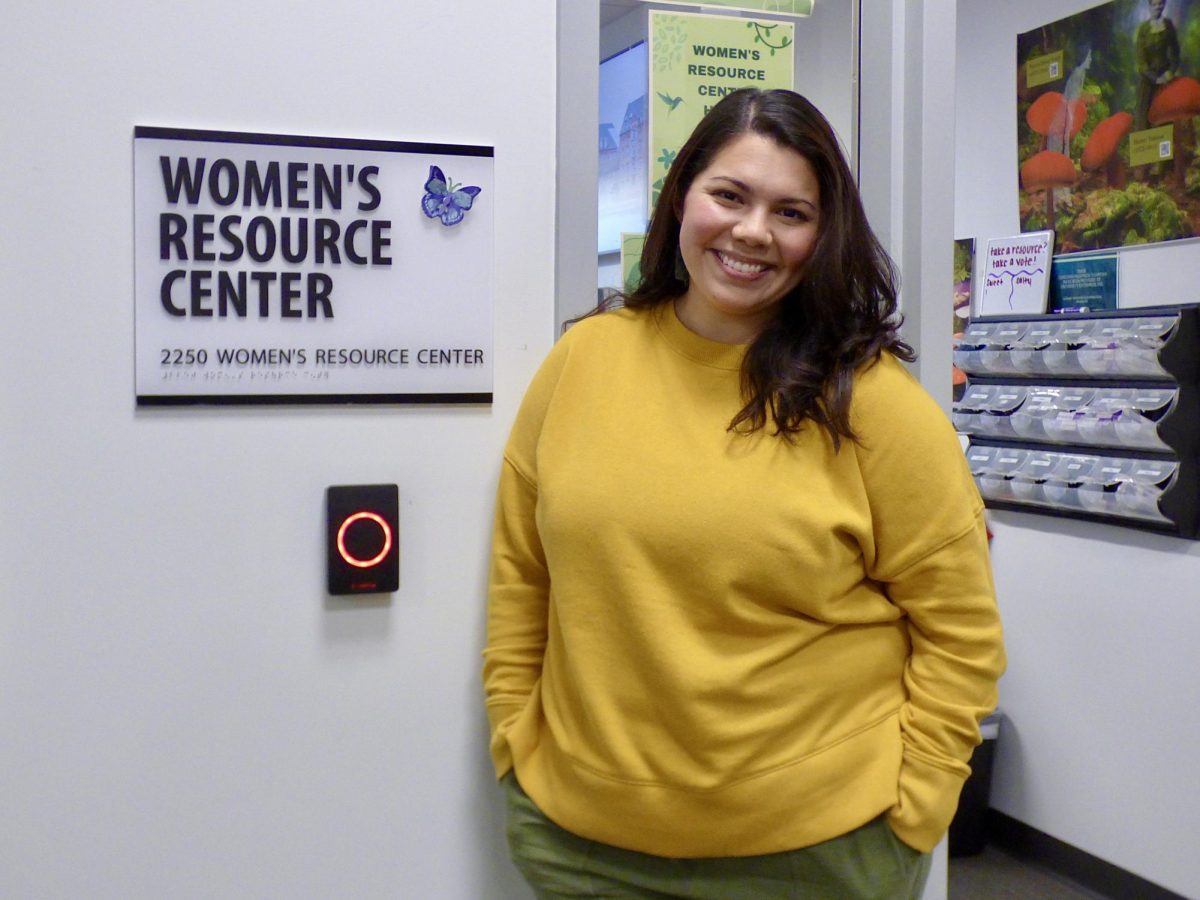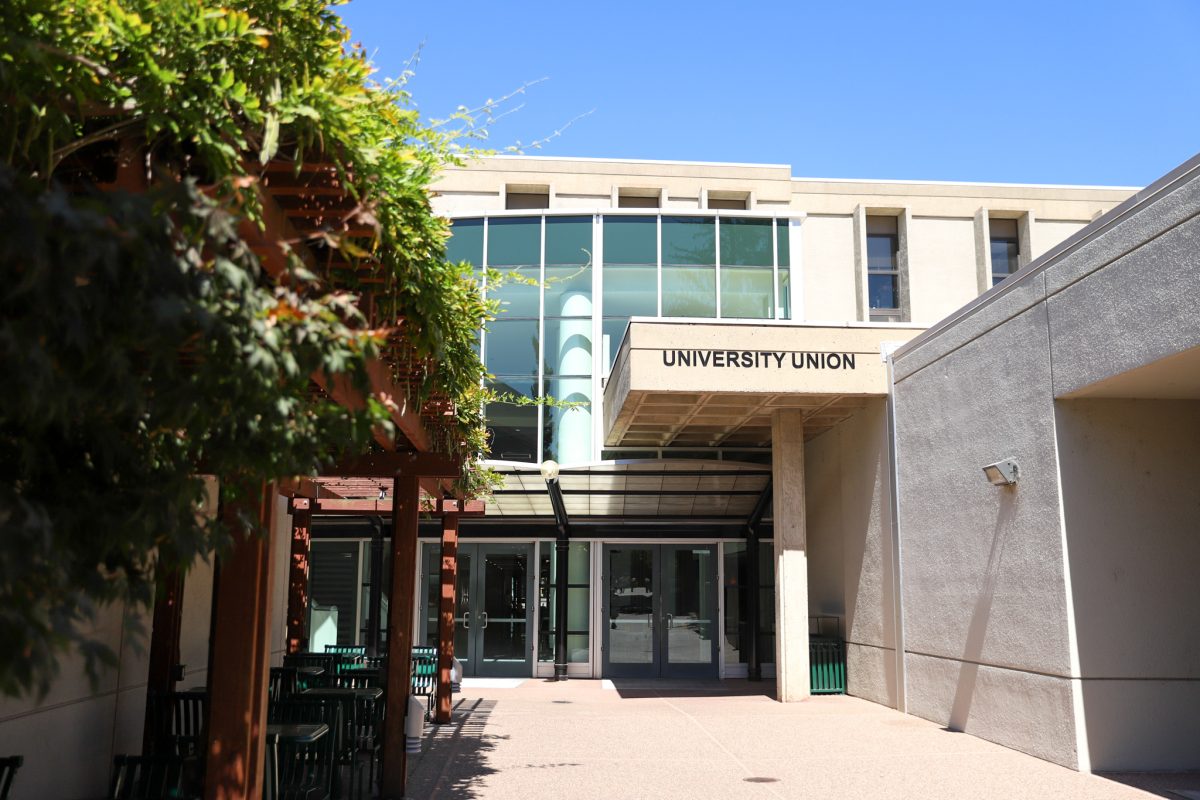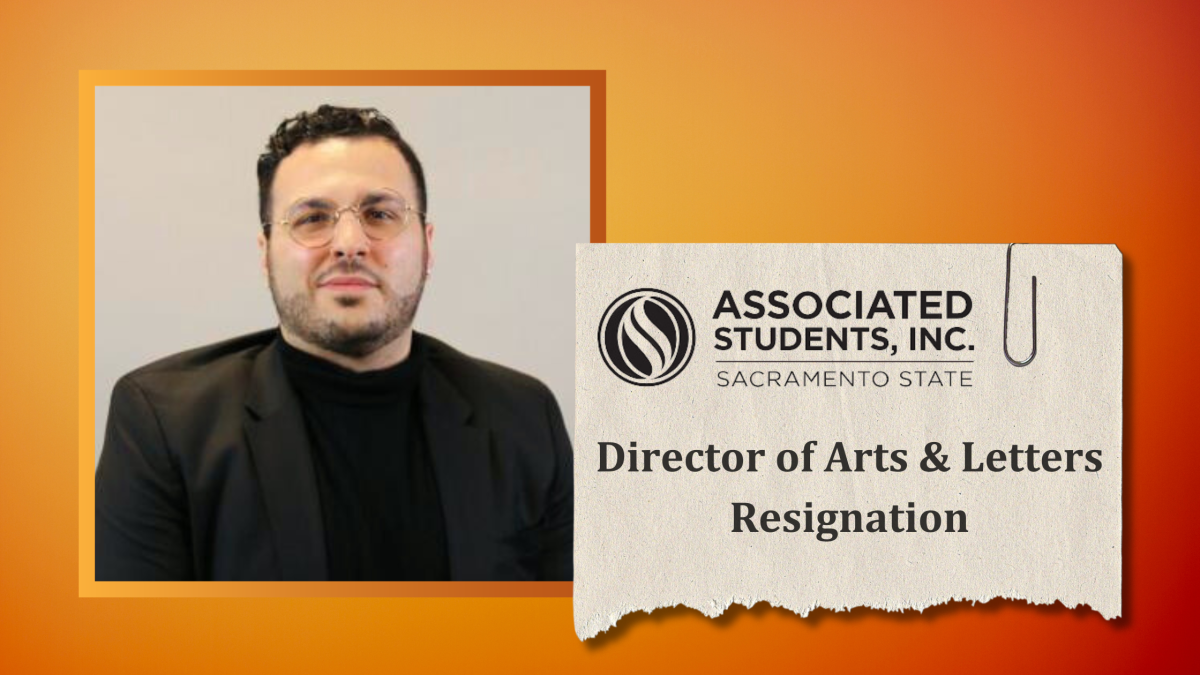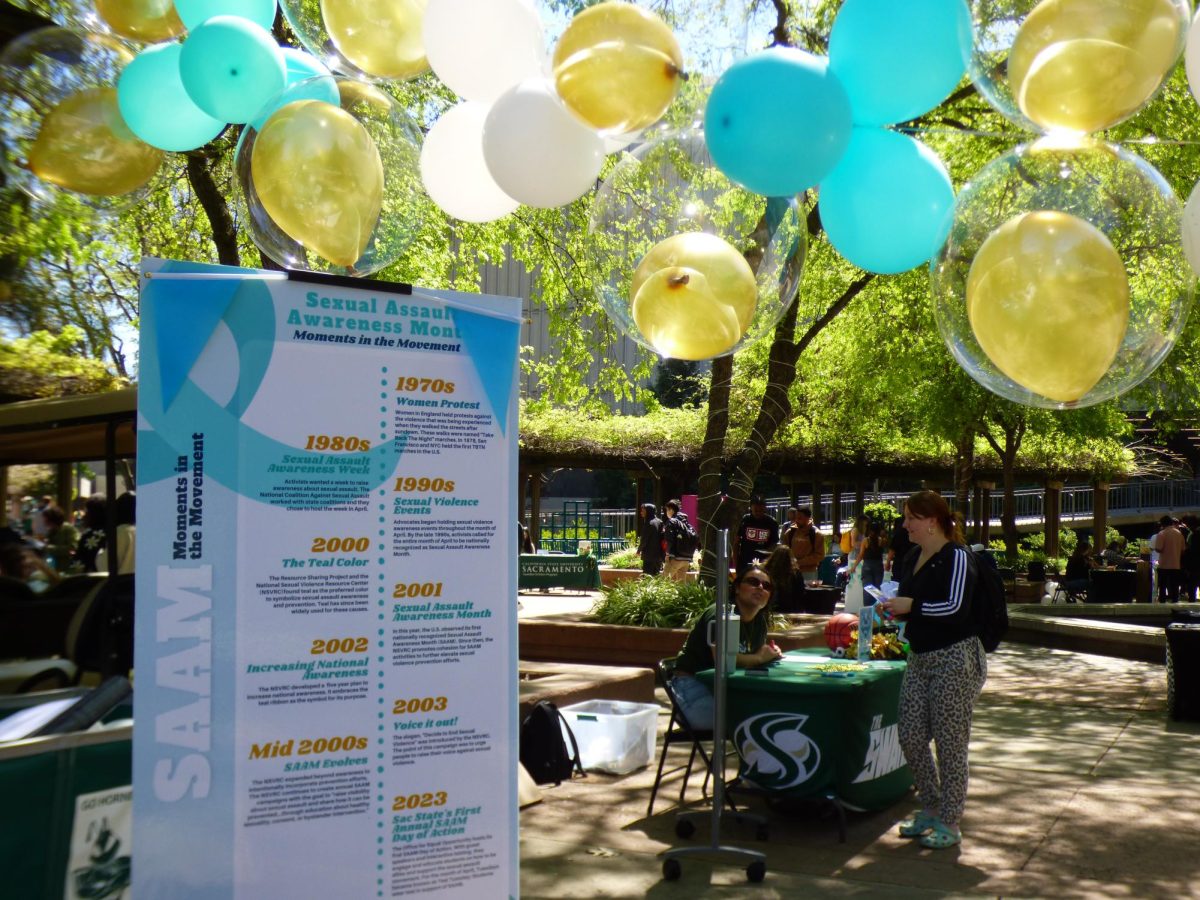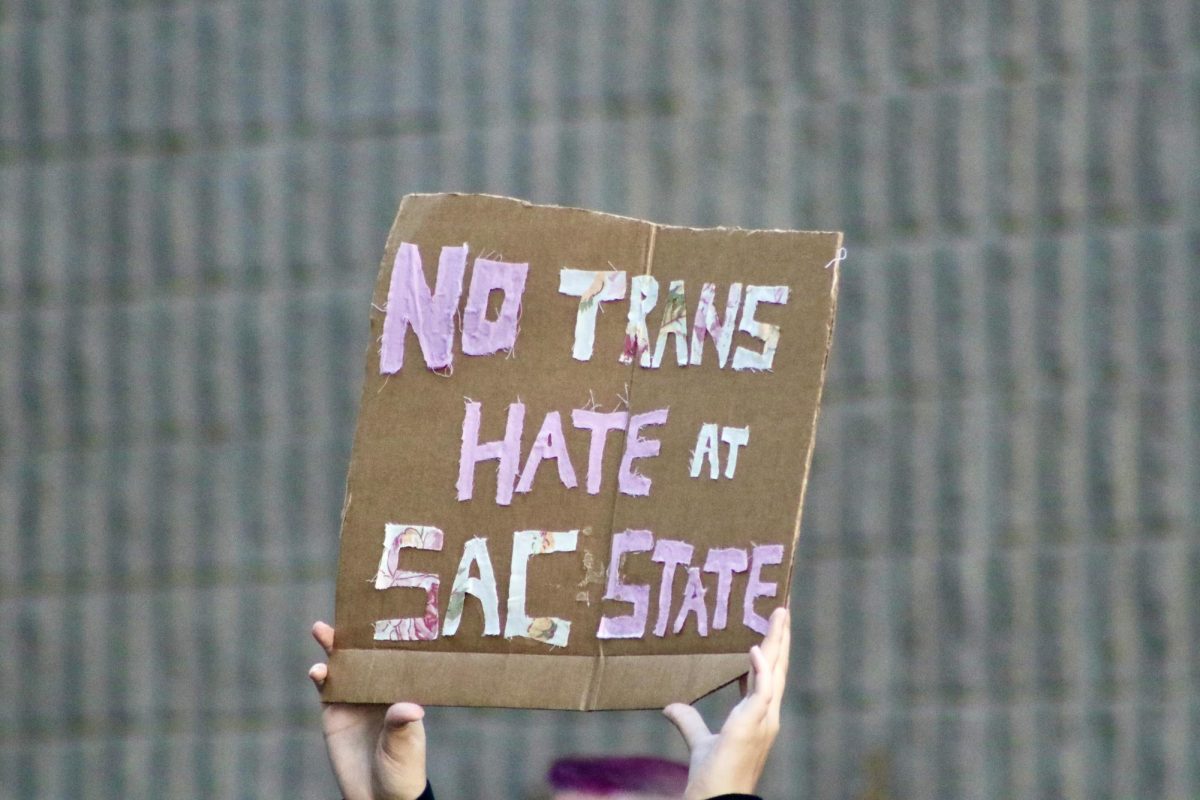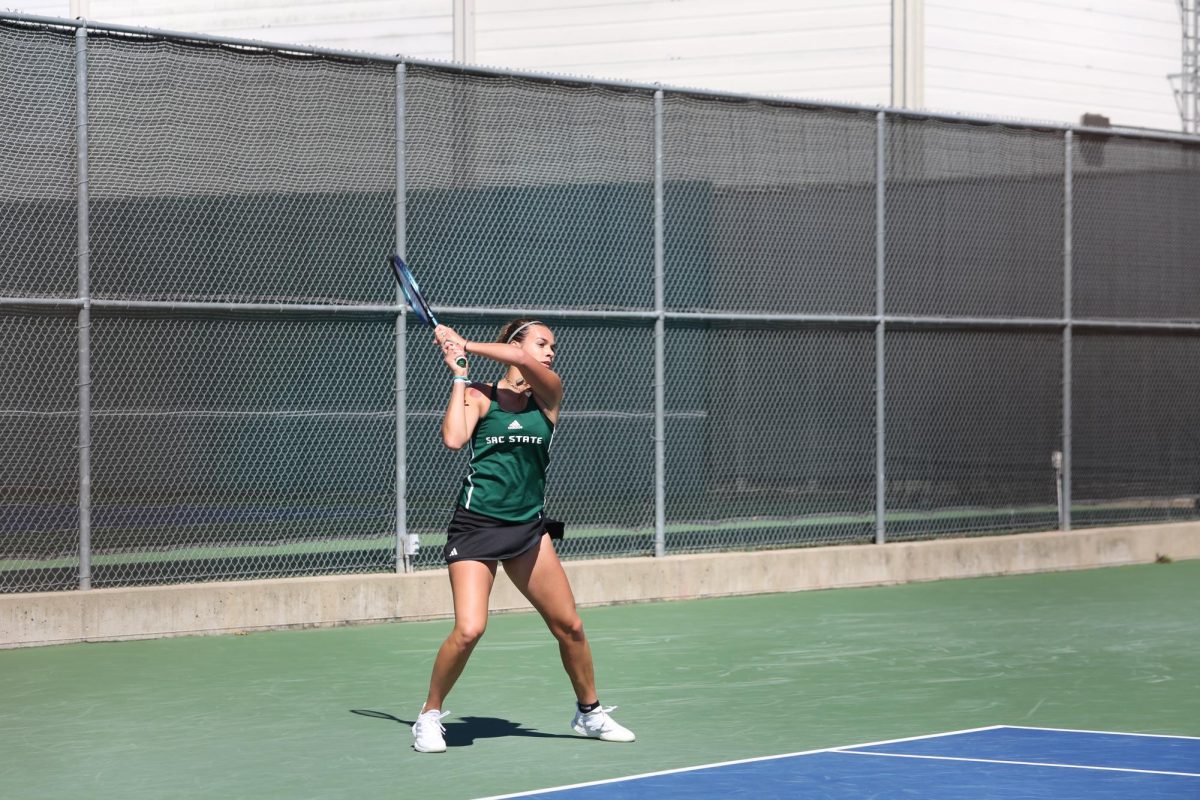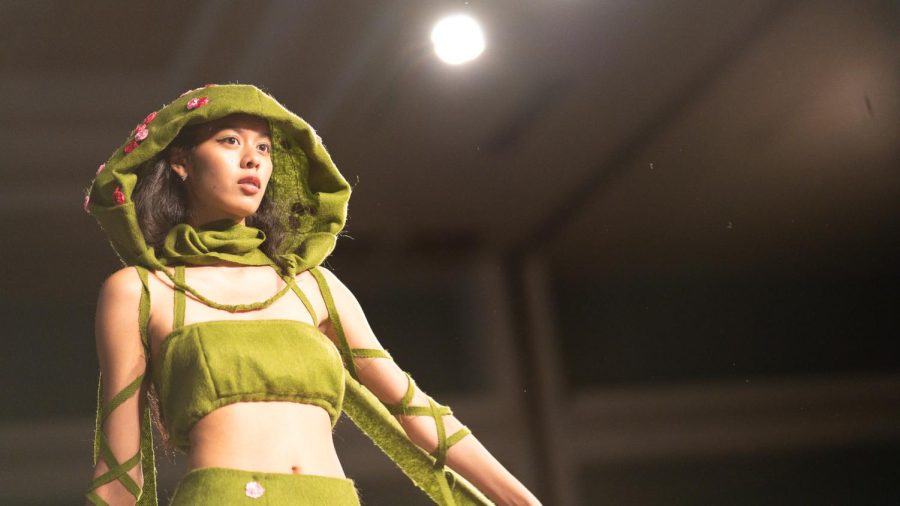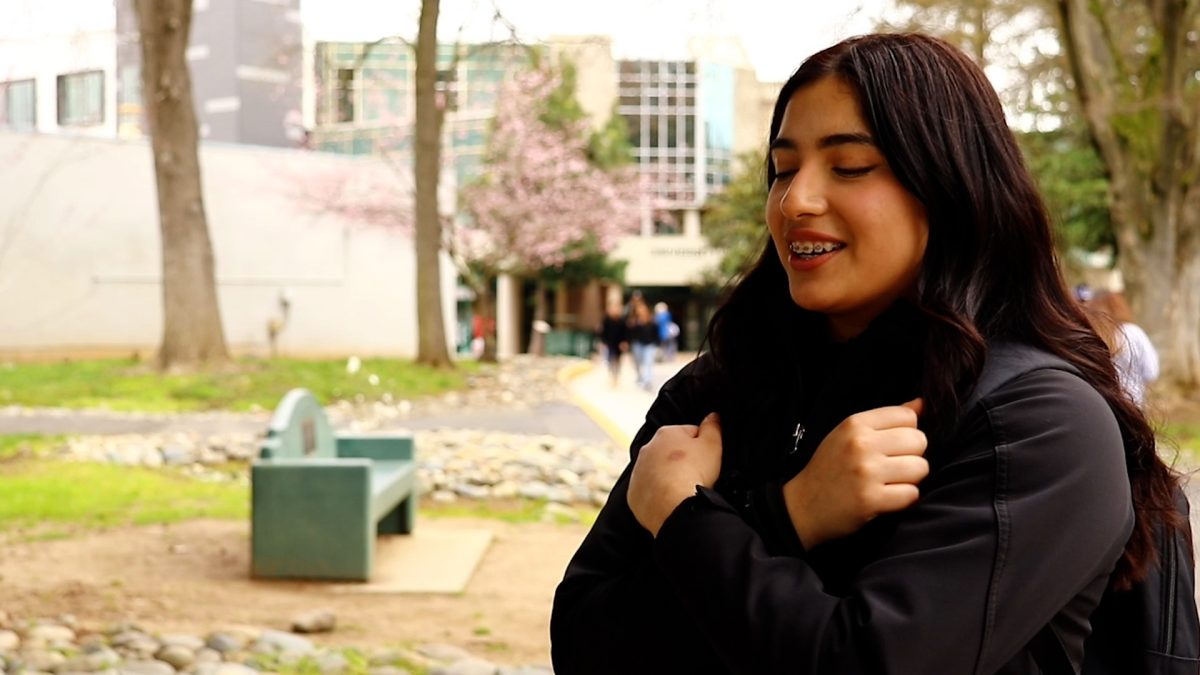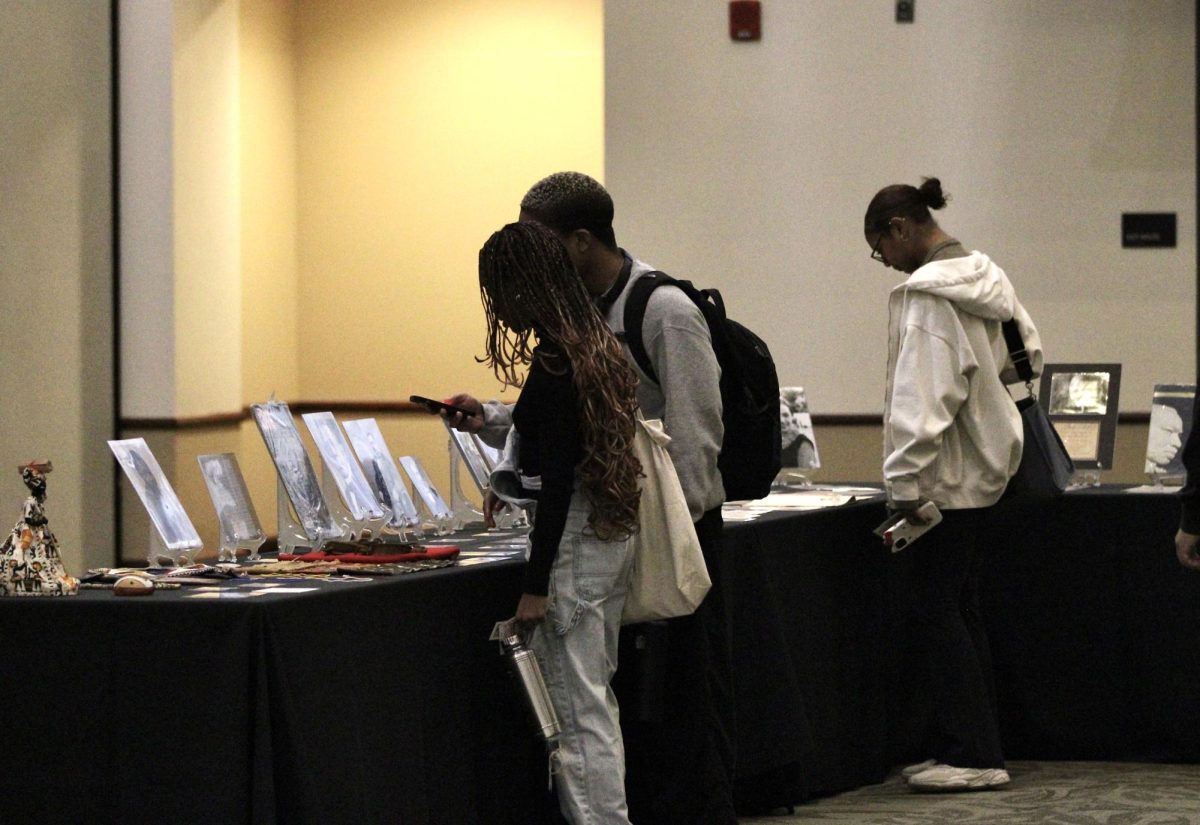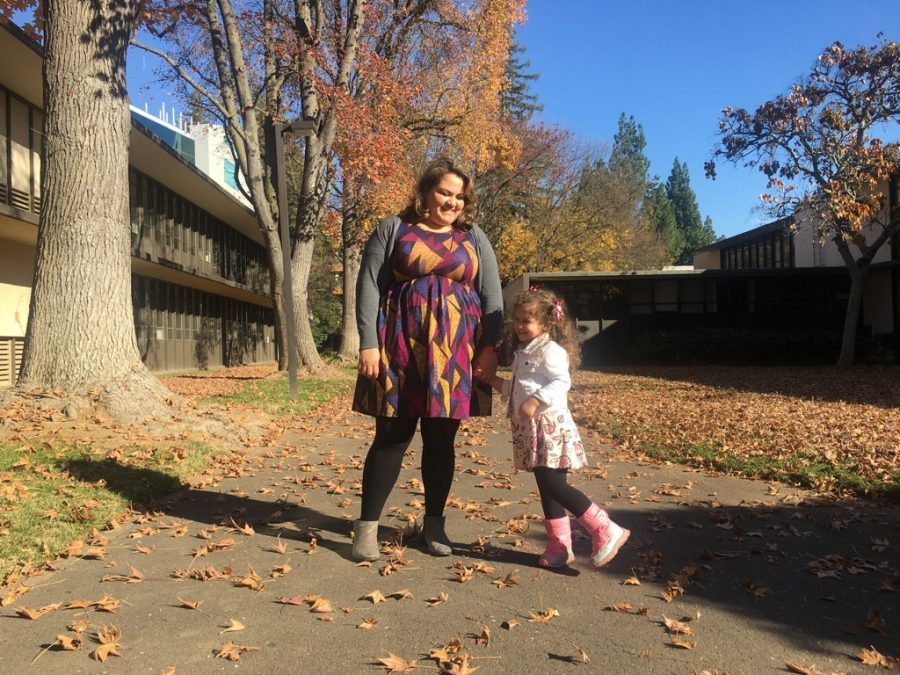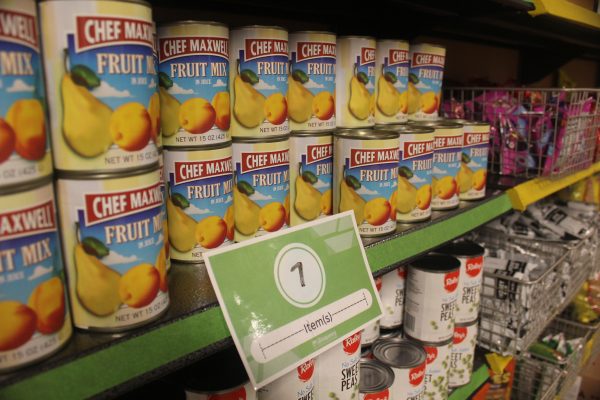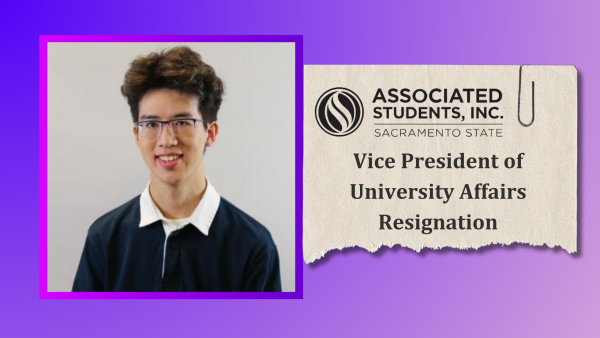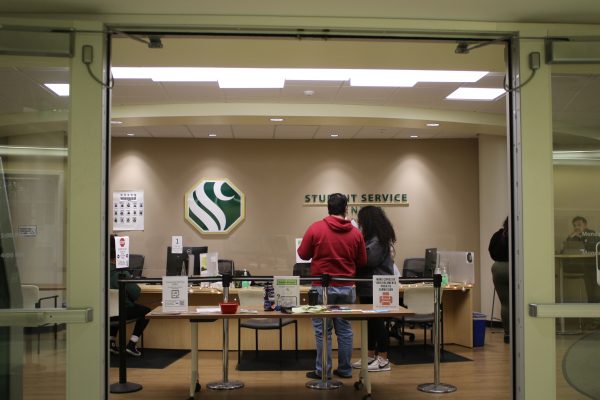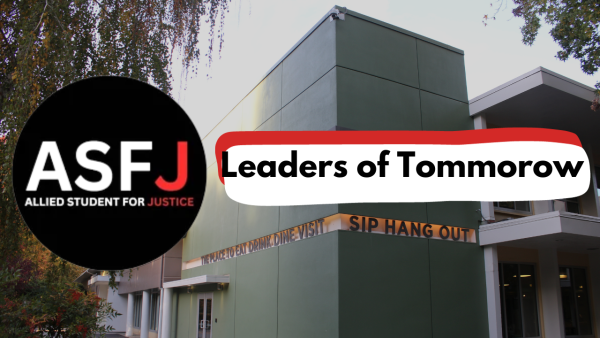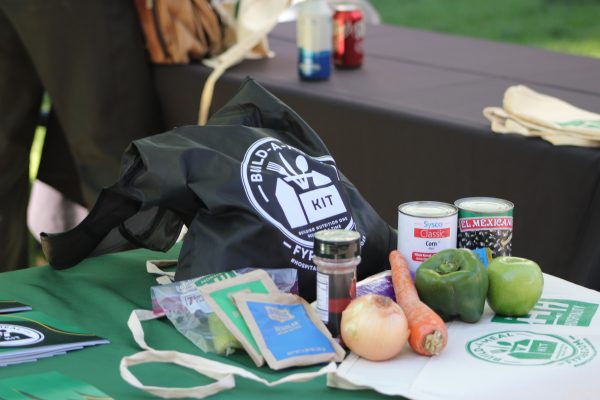Sac State director advocates for often forgotten student population: parents
Ten percent of Sac State students have children dependents, but many say they aren’t getting the resources they need
Adria Watson - The State Hornet
Business administration major Rosa Garcia and her daughter outside of Alpine Hall at Sacramento State Saturday, Dec. 8. Garcia is one of the more than 10 percent of students at Sac State who are juggling being a parent and a student — on top of many other roles.
Sacramento State student Rosa Garcia was brought to the U.S. from Guadalajara, Mexico when she was 7 years old. She said she wanted to go to college right after high school, but because of her residential status she could not receive financial aid and was unable to attend college.
Garcia eventually decided to attend community college and then transferred to Portland State University in 2009 to obtain a degree in architecture. But Garcia said she had to drop out a year later because she would need legal status to obtain her architecture license.
“I felt so hopeless,” Garcia said.
This was around the time in 2010 when then-President Barack Obama was first trying to pass through his Deferred Action for Childhood Arrivals initiative.
After a long hard fight, good news came to Garcia in 2014 in the form of work authorization from the DACA program. Garcia received asylum status this past July and is excited to be able to apply for permanent residency next year.
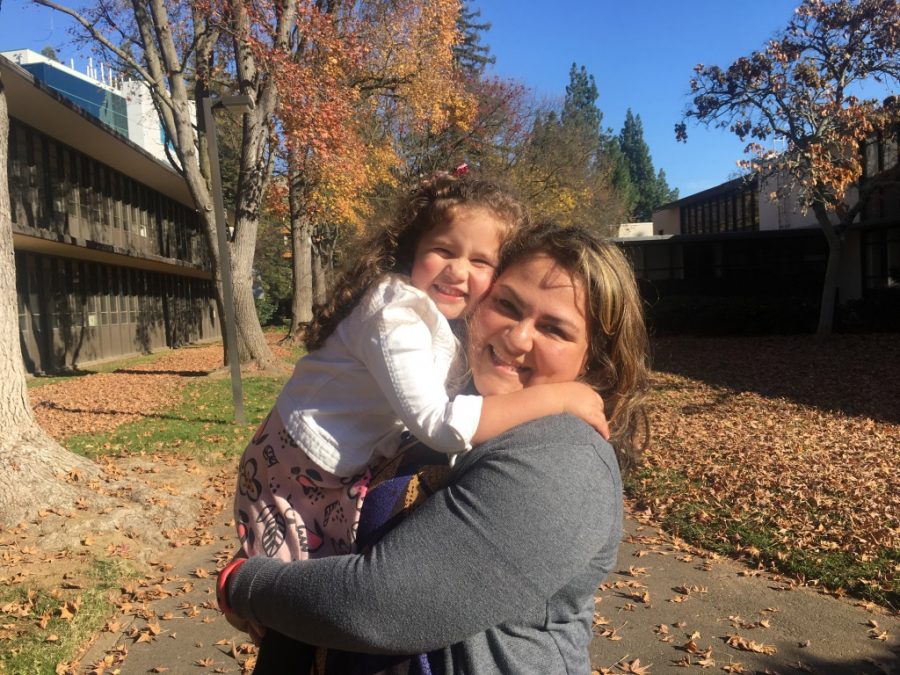
Business administration major Rosa Garcia and her daughter outside of Alpine Hall at Sacramento State Saturday, Dec. 8. Garcia is one of the more than 10 percent of students at Sac State who are juggling being a parent and a student — on top of many other roles.
Garcia is also a single mother to 4-year-old Josie.
“I just feel if I can do this while having all that crap in the back of my mind, my daughter hopefully will have an easier time and she’ll be able to do so much more,” Garcia said. “Or nothing, but at least she chose it.”
Garcia is one of the more than 10 percent of students at Sac State who are juggling being a parent with other responsibilities, like attending school and working full or part-time.
“Every time I meet a student with children and they’re new to this campus, often, they feel isolated and feel like they’re the only ones,” said Haley Myers Dillon, director of Sac State’s Parents & Families Program. “They don’t know other students with kids. I tell them ‘you’re not alone.’ ”
Parents & Families program
Myers Dillon was hired in 2012 to start the Parents & Families program.
Initially, the program was geared toward parents of students, Myers Dillon said. But as she attended transfer orientations over the years, more and more students with children approached her table looking for resources to help them — resources the program did not offer at the time.
Myers Dillon said she realized the program needed to change after her third semester of having to send students to the Associated Students, Inc. table to find out more about what was available to them, such as the ASI Children’s Center.
“I just felt so awful. As a public servant we’re all here to help people,” Myers Dillon said. “[Students with children] was an obvious group that needed service.”
In the 2017 academic year, 3,675 students at Sac State reported having dependent children, according to Myers Dillon. She said it took her two years to get access to that data from the university.
Myers Dillon said that she had no guidance from the university when trying to get access to data. She waited a full year after requesting data from the university’s financial aid office, who she said cited privacy concerns regarding what she would do with the information.
“I need to understand what sort of scale we’re talking about.” Myers Dillon said. “A big round number doesn’t even begin to convey the details that are important either, like how many kids do they have? How old are their kids? What are their primary stressors? Student parents at Sac State are kind of invisible.”
Advocacy and resources
Part of Myers Dillon’s role as director is to be an advocate for students with children, which she says includes talking to them about their options and how to achieve life balance.
“In the immediate sense, I can talk with a student and help them with time management, if they feel they need that. Help them with academics or prioritizing parts of their lives,” Myers Dillon said. “Sometimes somebody just needs an external person to think through those things, and I enjoy doing that and I’ve seen it be fruitful for a lot of students.”
Myers Dillon’s advocacy also goes as far as taking the first step in reaching out to these students, rather than waiting for them to come to her, to let them know about the resources available to them.
Business administration major Jermaine Gregoire said he rents a room in Sacramento for the five days a week he is in the area for school and work.
As soon as his classes come to an end Friday, Gregoire makes the two-hour journey home to see his two children — one is 7 and the other is 17. Gregoire says the visit is often short-lived because he sometimes gets scheduled to work on the weekends, at times leaving him only one day to catch up with his family.
He said he thinks sometimes it’s hard being away from his family, but overall he’s OK with the distance because he says this is what is best for them.
“I’m not there, so it’s difficult for them, difficult for me, but being in school overall is good,” Gregoire said. “It’s just been a struggle trying to support my family and get my education at the same time. I feel like in the long run it’s gonna benefit everybody, all of us. So I’m just pushing forward with it.”
Gregoire met Myers Dillon last fall semester at the Student Academic Success Day, where he spoke to her about his family and commute. About 10 minutes after their brief conversation, Gregoire said Myers Dillon found him and gave him information about what the Parents & Families program offers.
Myers Dillon said it was initially hard to get a sense of what student parents at Sac State needed because so few people were coming to her office. In response, the program sent out surveys in the fall to students with children to try and get more information about student parents.
Myers Dillon said she received 405 responses.
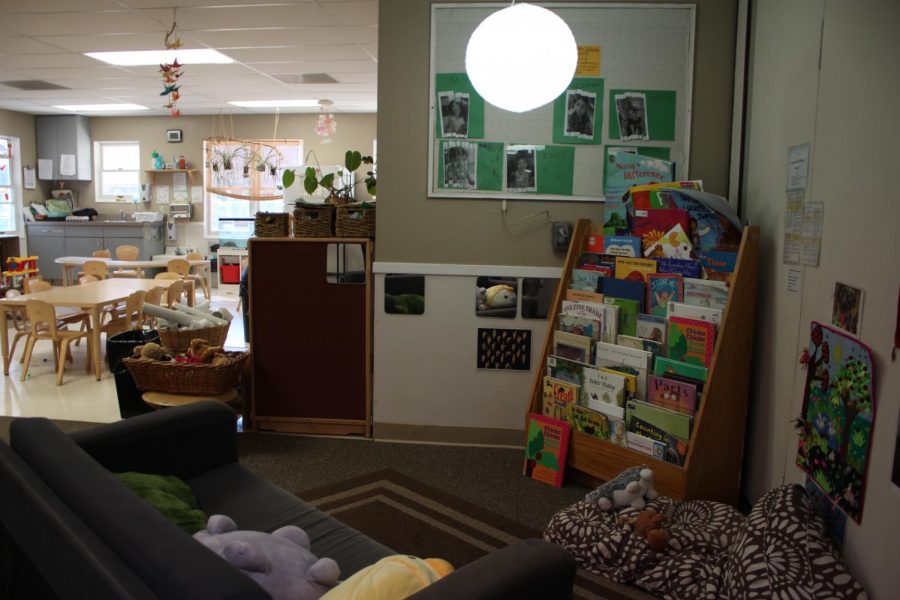
Haley Myers Dillon, the director of Sac State’s Parents & Families Program, and the Children’s Center recently worked together to secure a four-year grant through the U.S. Department of Education that will expand the center’s hours until 9 p.m. on weekdays and Saturdays from 9 a.m. to 3 p.m. during midterms and both the week before and during finals.
Many resources around campus — like child care and Mother’s Rooms — existed before Myers Dillion came to Sac State but she has plans in mind to expand the college’s current offerings.
The survey respondents indicated they needed financial assistance, expanded childcare options, child-friendly spaces on campus, family housing near or on campus and improved lactation rooms with diaper changing stations.
Myers Dillon said she worked with the Community Women, Infants and Children (WIC) program — a federal program that provides food, health care referrals and other services to low-income expectant, breastfeeding and non-breastfeeding women and children ages five and below — to add improvements to the Mother’s Rooms, making the rooms feel friendlier and welcoming.
She said she has recently gotten approval for a grant that would add 10 more diaper changing stations in more bathrooms around Sac State.
Additional resources the Parents & Families program added for students with children in the fall include sending newsletters, advising, workshops and hosting focus groups.
Child development major and mom to 2-year-old JJ, Jessie Graneros says Monday through Friday she starts her days at 5 a.m. Each morning she packs her husband’s lunch, makes herself something to eat, gets her son’s things together and is out of the door by 6:30 to get to her classes at Sac State or to work.
Graneros said she didn’t know Sac State had any resources for student parents until she RSVP’d to attend a focus group Myers Dillon held at the end of November. That was the first time she realized there was even someone who is equipped to help parents on campus.
“I think it’s nice to know the college campus is also trying to put their best foot forward to do their best and to learn more about the students,” Graneros said.
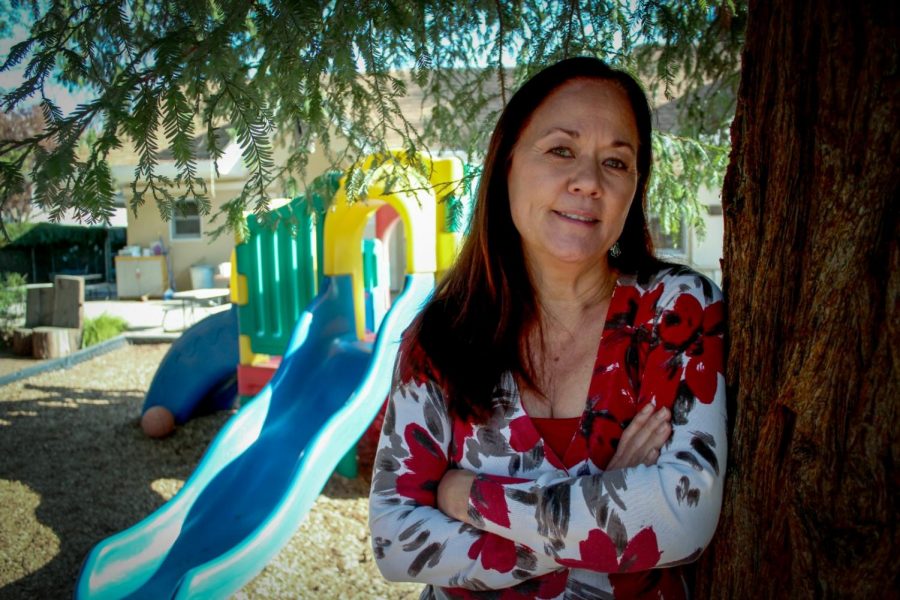
Sherry Velte, director of the Children’s Center on campus, says that student parents are given priority over Sacramento State’s faculty and staff for spots in child care because the program is funded by the student government.
Children’s Center partnership
Along with everything else, Myers Dillon has also partnered with the Children’s Center.
There are 205 children currently enrolled at the center, with 87 percent of those children belonging to parents who attend classes at Sac State, said Sherry Velte, the center’s director. The rest of the center’s enrollees are children of people who work at the college.
“Sac State students always get priority over faculty and staff because the children’s center is funded by the student government,” Velte said
Both Myers Dillon and the Children’s Center recently worked together to secure a four-year grant through the U.S. Department of Education that will expand the center’s hours until 9 p.m. on weekdays and Saturdays from 9 a.m. to 3 p.m. during midterms and both the week before and during finals.
The extended hours began this semester and the grant requires that student parents using the service must be Pell Grant eligible, according to Myers Dillon.
The library also has a family study room located in Library 2003 for students with children. The room is first come, first serve and students can check out keys to the room for up to four hours, according to the website.
Awareness and sense of community
One of the biggest things student parents say they miss out on in the college experience is a sense of community.
But Myers Dillon has been working alongside Sac State graduate student Kaifa Yates to change that by starting a club on campus for student parents.
Yates, who has a young son himself, said he got the inspiration to start a club from Sac State alumna Brittney LeBlue. LeBlue founded an organization called The Parent Corner, an off-campus resource that connects student parents with one another and is not limited to just students at Sac State.
Yates said he wants to create a space on campus that would be accessible for student parents and will be somewhere they can be surrounded by people who face similar problems.
“You can’t go to a lot of the events that happen on campus, you can’t be a part of the other clubs because a lot of the clubs meet at 6 o’clock on a Thursday and it’s like, ‘Dude, I have my son,’” Yates said. “I have to do dinner for him. I have to do homework with him and then after I do homework with him, I have to do my homework and put him to bed.”
Yates said he’s noticed some student parents feel like they have no one on campus to connect with and also want to feel like they belong at Sac State. He said he hopes this club will be a good way to establish that for student parents.
“The hardest thing is when you’re in the classroom a lot of the students in there don’t have kids, so you can’t really talk to them about what your night was the night before,” Yates said. “Their night was maybe studying or hanging out or going to different parties or whatever. For me it’s like my kid was sick. Who can you talk to about that?”
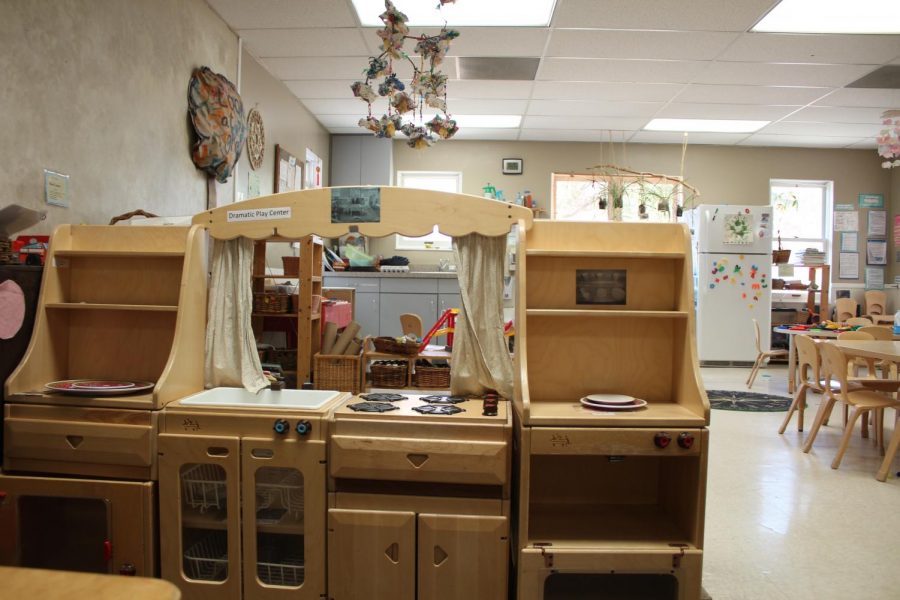
Myers Dillon said she wants to create awareness and educate the campus community about how to help student parents. The series of student-parent-focus groups that were held in November was another way for her to gather information beyond the surveys, she said, shedding light on what student parents go through.
The focus groups allowed many student parents to come face to face with a group of people they didn’t know existed, people just like them who face similar stigmas and challenges. They were able to share sentiments about the sacrifices they make being away from their children while being a student — and for some, having to work, too — but also reassuring one another that this journey does get easier.
Garcia said that she has attended support groups for moms in the past. She said hearing from people in the focus groups about their struggles makes it seem like she’s not alone and that it is possible to juggle multiple roles.
“Just being around other parents that can totally empathize when you’re just like, ‘I don’t want to do this today. I don’t want to be a parent,’ and at the same time talking about our kids so incessantly because they’re so cute,” said Garcia. “It’s a journey and it’s really hard to do it with kids.”
RELATED: EDITORIAL: Sac State needs to do more for student parents
Your donation will support the student journalists of Sacramento State University. Your contribution will allow us to purchase equipment and cover our annual website hosting costs.




